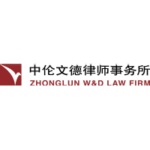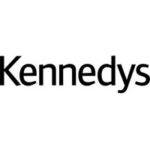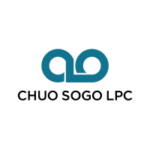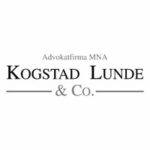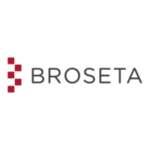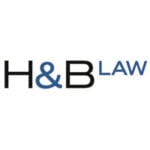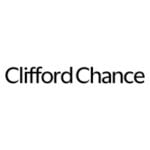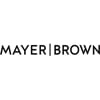-
How is the writing of insurance contracts regulated in your jurisdiction?
The writing of insurance contracts in Sweden is regulated by the Insurance Contracts Act (Sw. försäkringsavtalslag (2005:104)) (the “ICA”). The framework is divided into four parts which regulate the following:
Part one: Introductory provisions
Part two: Individual Liability Insurance
Part three: Individual Personal Insurance
Part four: Group Insurance
The ICA is mandatory for the benefit of the policyholder and the insured, unless otherwise provided by law. Certain types of insurance are exempt from the mandatory application of the ICA, such as i) marine insurance, other transportation insurance or aircraft insurance which is not consumer insurance, ii) credit insurance, and iii) group non-life insurance which is issued for a group of undertakings. In addition to the ICA, insurance contracts are also subject to the Contracts Act (Sw. lag (1915:218) om avtal och andra rättshandlingar på förmögenhetsrättens område) and, where relevant, the Consumer Contracts Act (Sw. lag (1994:1512) om avtalsvillkor i konsumentförhållanden) or the Act on Terms of Contract between Tradesmen (Sw. lag (1984:292) om avtalsvillkor mellan näringsidkare).
-
Are types of insurers regulated differently (i.e. life companies, reinsurers?)
A Swedish undertaking may conduct insurance or reinsurance business in Sweden only after having been duly authorised by the Swedish Financial Supervisory Authority (Sw. Finansinspektionen) (the “SFSA”) pursuant to the Insurance Business Act (Sw. försäkringsrörelselag (2010:2043)) (the “IBA”).
Life insurers are defined as insurance undertakings engaged primarily or exclusively in the business of direct insurance or reinsurance of life assurance. Every insurer that is not a life insurer is a non-life insurer. A reinsurer, on the other hand, is an insurer that has received authorisation solely for the purpose of reinsurance. Accordingly, there are separate authorisations for life, non-life and reinsurance activities, and different minimum capital requirements. Non-life and life insurance activities cannot be carried out by the same undertaking, as an entity may only obtain a license to perform one type of insurance activity (except that life insurance undertakings may obtain authorisation for short term health and accident insurance). All Swedish insurance undertakings are regulated by the same legislation, i.e. the IBA, the Commission Delegated Regulation (EU) 2015/35 (“the Solvency II Regulation”) and regulations and general guidelines issued by the SFSA and EIOPA.
A Swedish undertaking may conduct occupational insurance business only after being duly authorised by the SFSA pursuant to the Swedish Occupational Pension Undertakings Act (Sw. lag (2019:742) om tjänstepensionsföretag) (the “IORP Act”), implementing Directive (EU) 2016/2341 of the European Parliament and of the Council on the activities and supervision of institutions for occupational retirement provision (the “IORP II Directive”). All occupational insurance undertakings are regulated by the IORP Act and regulations and general guidelines issued by the SFSA and EIOPA.
-
Are insurance brokers and other types of market intermediary subject to regulation?
Insurance intermediaries, ancillary insurance intermediaries and insurance undertakings are subject to the Insurance Distribution Act (Sw. lag (2018:1219) om försäkringsdistribution) (the “IDA”). The IDA implements the Directive (EU) 2016/97 on insurance distribution (the “IDD”) in a directive-confirm way, including the exemptions for large risks and reinsurance. However, there are some areas where the Swedish legislator and the SFSA have exercised the possibility to implement stricter requirements than as set out in the IDD (gold plating). Such gold-plated provisions include stricter requirements regarding knowledge and competence requirements for employees, professional indemnity insurance, internal policies and procedures and complaints handling. In addition, certain provisions regarding remuneration and information about remuneration are more stringent than those outlined in the IDD.
-
Is authorisation or a licence required and if so how long does it take on average to obtain such permission? What are the key criteria for authorisation?
A Swedish undertaking wishing to conduct insurance business in Sweden must be duly authorised by the SFSA pursuant to the IBA. An authorisation can be granted to an insurance undertaking limited by shares (Sw. försäkringsaktiebolag), a mutual insurance undertaking (Sw. ömsesidigt försäkringsbolag) or an insurance association (Sw. försäkringsförening).
A Swedish undertaking wishing to conduct occupational insurance business (“IORP business”) in Sweden must be duly authorised by the SFSA pursuant to the IORP Act. An authorisation may be granted to an IORP undertaking limited by shares (Sw. tjänstepensionsaktiebolag), a mutual IORP undertaking (Sw. ömsesidigt tjänstepensionsbolag), or an IORP association (Sw. tjänstepensionsförening).
Authorisation to conduct insurance or IORP business in Sweden is granted by the SFSA when the requirements defining insurance business (or, as applicable, IORP business) are satisfied. A key criterion is that the undertaking shall have a capital base that meets the solvency capital requirements both initially and throughout the first three years of operation. The capital base may never be less than the minimum capital requirement, which is specified under Question 12. Additionally, for an authorisation to be granted, the applicant’s articles of association must be compliant with the IBA or the IORP Act and the proposed business shall be deemed compliant with the relevant laws and regulations regarding the business of the applicant. In addition, the qualifying holder or holders of shares in an insurance or IORP undertaking must be judged to be appropriate to exercise a significant influence over the management of the undertaking, which includes considerations governing good standing and capital strength of the qualifying holder(s). Furthermore, the persons involved in the management of, or in charge of, key functions, must possess the knowledge and experience deemed to be sufficient as well as being considered as fit and proper persons in this respect.
The SFSA’s target processing time is five months from the date the application is complete, and the application fee has been paid.
An insurance intermediary must be authorised by the SFSA in accordance with the IDA. The SFSA target processing time is three months from the date the application is complete, and the application fee has been paid. Tied insurance intermediaries do not need a license from the SFSA but shall be registered with the Swedish Companies Registration Office (Sw. Bolagsverket) (the “SCRO”).
-
Are there restrictions or controls over who owns or controls insurers (including restrictions on foreign ownership)?
A direct or indirect acquisition of shares in an insurance undertaking that results in the acquirer holding a qualified holding requires authorisation from the SFSA. A qualified holding is a direct or indirect holding representing 10 per cent or more of the capital or voting rights, or that otherwise makes it possible to exercise a significant influence over the management of the undertaking. The same requirements apply to acquisitions that increase a qualifying holding to or beyond 20, 30 or 50 per cent of the share capital or the voting rights, or that result in the undertaking becoming a subsidiary. Authorisation must be sought by the acquirer prior to acquisition.
Authorisation shall be granted if the acquirer is deemed suitable to exercise a significant influence over the management of the insurance undertaking and if it can be assumed that the acquisition is financially sound. The likely impact of the acquirer on the insurance undertaking shall also be taken into account.
The assessment is based on information provided by the acquirer, as well as information from the Swedish Enforcement Authority (Sw. Kronofogden), the SCRO, the Swedish Tax Agency (Sw. Skatteverket), and the Swedish Police Authority (Sw. Polismyndigheten). If necessary, additional information is obtained from foreign supervisory authorities. If permission for an acquisition is granted, the SFSA may decide that the acquisition must be carried out within a certain period of time.
In addition to the requirements for acquiring shares in an insurance undertaking, there are obligations set out for whoever is divesting such shares. Anyone who has decided to dispose of a qualifying holding, or such a large part of a qualifying holding of shares in an insurance undertaking that the remaining holding will fall below one of the limits set out above, shall notify the SFSA.
Note that it is the shareholder who must seek authorisation prior to an acquisition and notify the SFSA of a disposal. However, the insurance undertaking is also required to notify the SFSA of an acquisition without delay upon becoming aware of the acquisition or sale.
Furthermore, on 19 March 2019, Regulation (EU) 2019/452 of the European Parliament and of the Council was adopted establishing a framework for the screening of foreign direct investment (the “FDI Regulation”) in the Union, which forms the basis of the Foreign Direct Investments Act (Sw. lag (2023:560) om utländska direktinvesteringar) (the “FDI”). Subject to the FDI, any party intending to invest in a business conducting protection-worthy activities must notify the Swedish Authority Inspectorate of Strategic Products (the “ISP”) (Sw. Inspektionen för strategiska produkter) before making the investment. Protection-worthy activities include activities, services or infrastructure that maintain or ensure societal functions that are essential for society’s basic needs, values, or security (“essential services”). The Swedish Civil Contingencies Agency (Sw. Myndigheten för samhällsskydd och beredskap) has issued regulations governing which essential services that are covered by the FDI screening system (Sw. MSBFS 2024:9 föreskrifter om vilka samhällsviktiga verksamheter som omfattas av lagen (2023:560) om granskning av utländska direktinvesteringar). According to these regulations, essential services include activities of insurance undertakings that involve the provision of insurance that may result in remuneration equivalent to wages or pensions, insurance activities necessary for the maintenance of other essential activities and claims management activities of insurance undertakings. However, only activities with either at least five employees, with an annual turnover of SEK 5 million or more (calculated as an average of the last three financial years), or businesses with a shorter period of operation than three years with a turnover of SEK 5 million or more (calculated on the basis of the previous financial year) are included.
Subject to the FDI, the ISP shall, within 25 days after the notification, decide whether a review shall be initiated or leave the notification without action. An investment requiring notification may proceed only if the authority either takes no action or explicitly approves it after a review. In respect of whether a notification shall be realised or not, the nature and scale of the activity and the circumstances of the investor should be considered.
-
Is it possible to insure or reinsure risks in your jurisdiction without a licence or authorisation? (i.e. on a non-admitted basis)?
It is possible for an insurance undertaking authorised in a third country to cover risks in Sweden without authorisation, but only on a strict non-solicitation basis (i.e. providing insurance services solely at the initiative of the client).
However, an insurance undertaking domiciled in another EEA country cannot rely on the non-solicitation exemption. For an EEA insurance undertaking to cover risks in Sweden, it must either conduct business in Sweden on a freedom of services or a freedom of establishment basis.
-
Is a branch of an overseas insurer, insurance broker and/or other types of market intermediary in your jurisdiction subject to a similar regulatory framework as a locally incorporated entity?
For (re)insurers, IORP undertakings, and insurance intermediaries domiciled in the EEA, the so-called single-license principle applies. This means that insurance undertakings with registered office and authorisation in another member state may conduct cross-border business in Sweden under the freedom to provide services or freedom of establishment, without prior Swedish authorisation. This is subject to certain notification procedures involving the authorities of the relevant home state.
Insurance undertakings domiciled within the EEA with branches in Sweden are primarily supervised by the competent supervisory authority of their home state, including oversight of solvency, technical provisions, and assets covering technical provisions. Nevertheless, the SFSA retains general supervisory responsibility for ensuring the protection of the public interest, which includes, but is not limited to, ensuring that the undertaking meets its obligations to provide information to policyholders. As a result, these undertakings are still required to provide certain information to the SFSA, although not on a continuous basis. Additionally, the SFSA monitors the organisation of compliance functions, as well as claims adjustment and complaints-handling procedures, for EEA branches operating in Sweden.
Insurance undertakings and intermediaries domiciled outside the EEA are subject to stricter regulations and may conduct business in Sweden only if they obtain authorisation. However, under an agreement between the United States and the European Union, insurers from the United States are exempted from certain licensing requirements.
Non-EEA insurance undertakings may operate in Sweden through an agency or branch, but this requires a significant deposit with a Swedish bank. Swiss non-life insurance undertakings, however, benefit from agreements between Switzerland and the EU, allowing them to establish an agency or branch in Sweden without a deposit. Additionally, an insurer domiciled outside the EEA may market insurance for risks located in Sweden, provided it has obtained authorisation from the SFSA.
As a general rule, Swedish agencies and branches of non-EEA undertakings are fully supervised by the SFSA, as they require authorisation to conduct insurance operations in Sweden. However, if the insurer has also established an agency or branch in another EEA member state, it may apply for supervision to be transferred to the competent authority in that state.
-
Are there any restrictions/substance limitations on branches established by overseas insurers?
Please refer to the answer under question 7 above.
-
What penalty is available for those who operate in your jurisdiction without appropriate permission?
If the SFSA has reason to believe that a foreign undertaking conducts insurance business in Sweden without the proper authorisation, it may require the undertaking to provide information about the activity necessary for the SFSA to assess whether the IBA is applicable. If this is the case, and the undertaking has not fulfilled the requirements stated in the IBA, the SFSA may order the undertaking to change or cease its activities. The SFSA shall promptly inform the competent authority of the home state.
If an undertaking conducts insurance distribution in Sweden without the necessary authorisation, the SFSA shall order the undertaking to cease its operations. This also applies if an insurance intermediary distributes insurance products that it is not authorised to distribute. If there is an uncertainty as to whether the activities fall within the scope of the IDA, the SFSA may require the undertaking to provide the necessary information in order to carry out an assessment of whether the IDA is applicable.
-
How rigorous is the supervisory and enforcement environment? What are the key areas of its focus?
The SFSA’s supervision of compliance with anti-money laundering rules is currently very stringent. In recent years, the SFSA has imposed fines on several banks and financial institutions for non-compliance with anti-money laundering rules. Additionally, the SFSA places significant emphasis on greenwashing of financial products.
Currently, the SFSA has stated that it focuses its supervisory efforts on reviewing supervised undertakings’ ability to operate effectively under stress, ensuring consumers are offered good products and services that match their needs and circumstances, monitoring the financial sector’s measures to combat money laundering and other forms of financial crime, and assessing whether household debt threatens the stability and soundness of the financial market.
With respect to the insurance sector specifically, it can be noted that the SFSA has, in the last few years, issued fines against insurers regarding non-compliance with governance requirements (outsourced operations, independence in key functions, conflicts of interest and sound and prudent management) and non-compliance with rules regarding calculation of technical provisions.
-
How is the solvency of insurers (and reinsurers where relevant) supervised?
Insurers and reinsurers must have a capital base that covers the solvency capital requirement (“SCR”) and the minimum capital requirement (“MCR”). The SCR is a formula-based figure calibrated to ensure that all quantifiable risks are considered. This includes such risks as risks related to non-life underwriting, life underwriting, health underwriting, market, credit, operational and counterparty risks. The purpose of the SCR is to ensure that both insurers and reinsurers will be able to fulfil their obligations towards policyholders and beneficiaries during the forthcoming twelve months with a 99.5 per cent probability. The purpose of the MCR is to establish a bottom line that no insurer or reinsurer may go below.
The SCR may be calculated with the application of a standard formula, or an internal model approved by the SFSA. The calculation shall be made at least once per year and the results must be reported to the SFSA. In addition, the (re)insurance undertaking shall without delay inform the SFSA if the undertaking does not fulfil the SCR or the MCR, or if there is a risk that the undertaking may not fulfil such requirements within the next three months.
-
What are the minimum capital requirements?
The MCR for Swedish (re)insurance undertakings is derived from the Directive 2009/138/EC of the European Parliament and of the Council on the taking-up and pursuit of the business of Insurance and Reinsurance (the “Solvency II Directive”) and is governed by the IBA. The regulations require that the minimum capital shall be calculated to ensure with an 85 per cent probability that overall losses over a period of 12 months will cover the calculated capital requirement. The MCR shall not be less than 25 per cent or more than 45 per cent of the SCR and shall never be less than the start-up capital requirement. The start-up capital requirement is EUR 4 million for life insurance undertakings and for undertakings with risks relating to motor vehicle, aircraft, ships, general liability, credits, and guarantee insurance. For other non-life insurances, the amount is set to EUR 2.7 million.
-
Is there a policyholder protection scheme in your jurisdiction?
No, Sweden has no insurance guarantee system or similar schemes in place.
-
How are groups supervised if at all?
In accordance with the Solvency II Directive, implemented by the IBA, groups are subject to supplementary supervision in addition to the solo supervision of individual insurance undertakings. Insurance groups are subject to specific requirements with regards to consolidation of solvency, reporting of risk on a group level to the SFSA, risk assessment and internal audit, market reporting and disclosure of group structure.
It can be noted that on 28 February 2025, the Directive (EU) 2025/2 of the European Parliament and of the Council amending the Solvency II Directive (the “Amendment Directive”) entered into force. The Amendment Directive introduces a broader definition of what constitutes a group, which will likely expand the scope of group supervision under the IBA once the directive is implemented, bringing more entities under its regulatory framework.
-
Do senior managers have to meet fit and proper requirements and/or be approved?
Yes, (re)insurance undertakings shall ensure that whoever is a member of the supervisory board, director of the undertaking, or a replacement for any of them, or any person who is responsible to perform a central function in the undertaking has the knowledge and experience which must be required of a person involved in the management of an insurance undertaking. This person must also be deemed fit for the role.
Any changes to senior management must be reported to the SFSA without delay. The SFSA carries out a suitability assessment of the person in the light of, among other things, data collected from the Swedish Enforcement Authority, the Swedish Police Authority, the Swedish Information Centre (Sw. Upplysningscentralen) and the Swedish Tax Agency. For foreign nationals, the SFSA obtains relevant information from the supervisory authority in their home country. The SFSA shall also be notified if a senior manager has been replaced claiming the person no longer fulfils the suitability requirements. Changes of the managing director and the managing director’s deputies must be registered at the SCRO.
-
To what extent might senior managers be held personally liable for regulatory breaches in your jurisdiction?
It is the undertaking that is held liable for regulatory breaches. However, in respect of certain non-compliance, e.g. breach of anti-money laundering rules and non-compliance with consumer protection rules in the IDA, members of the board or the managing director of the undertaking may be subject to intervention by the SFSA. The SFSA may prohibit the person from performing a management function with an insurance intermediary or impose a fine.
-
Are there minimum presence requirements in order to undertake insurance activities in your jurisdiction (and obtain and maintain relevant licenses and authorisations)?
According to the IBA, a Swedish insurance undertaking must have its head office in Sweden. Further, an insurance undertaking’s priority register must be kept at its head office. Additionally, at least half of the board of directors must reside within the EEA.
For a foreign undertaking’s branch in Sweden, the managing director shall be resident within the EEA, unless otherwise permitted in an individual case by the SCRO.
Beyond these requirements, no specific presence is mandated for insurance operations in Sweden.
-
Are there restrictions on outsourcing services, third party risk management and/or operational resilience requirements relating to the business?
Yes, the IBA stipulates that insurance undertakings are required to have written instructions in relation to outsourcing and that the insurance undertaking must notify the SFSA if it intends to outsource “critical or important functions or activities” of its business. Article 274 of the Solvency II Regulation contains detailed restrictions regarding, inter alia, the terms and conditions of the outsourcing contract. Additional outsourcing requirements are outlined in the EIOPA governance and cloud outsourcing guidelines.
-
Are there restrictions on the types of assets which insurers or reinsurers can invest in or capital requirements which may influence the type of investments held?
An insurer’s assets must be managed prudently. In case of a conflict of interest, investments must prioritise the interests of policyholders and beneficiaries. Investments may only be made in financial instruments and other assets whose risks can be identified, measured, monitored, managed, controlled and reported. The investments must be considered appropriate in its own risk and solvency assessment.
Investments in financial instruments and other assets shall be made in such way as to achieve an appropriate spread of risk and invested in such a way that the undertaking’s solvency is satisfactory and the expected return sufficient. Moreover, the assets must be stored in such manner that they are accessible.
Investments in assets not admitted to trading on a regulated market shall be kept at prudent levels. In addition, assets must be invested in an appropriate manner to the nature and duration of the commitments and in a manner best suited to the interest of the policyholders, in the light of the investment objectives set and published. However, insurers are limited by the prohibition of non-permissible activities requirement.
Insurers must maintain a register of assets, which shall indicate whether any listed asset has been lent with such right that its full value cannot be used to cover technical provisions. In addition, life-insurers must develop a policy on how investments are made.
-
Are there requirements or regulatory expectations regarding the management of an insurer's reinsurance risk, including any restrictions on the level / type of reinsurance utilised?
There are no direct requirements relating to the management of an insurer’s reinsurance risk. However, reinsurance coverage may be taken into account when calculating the solvency capital requirements and technical provisions of an insurance undertaking and the IBA, Solvency II Regulation and the SFSA’s regulations contain requirements relating to how such calculations should be carried out.
-
How are sales of insurance supervised or controlled?
Sales of insurance products are governed by the IDA. The SFSA is responsible for the supervision of Swedish and foreign insurance intermediary’s insurance distribution in Sweden. In addition, the SFSA supervises Swedish insurance intermediaries that conduct insurance distribution in another country within the EEA.
Insurance intermediaries are not required to submit any periodic reporting to the SFSA regarding the insurance distribution. However, insurance intermediaries operating in Sweden are obliged to provide the SFSA with the information on their activities and related matters that is requested by the SFSA. The SFSA may, if necessary, carry out an investigation at the premises of an insurance intermediary, an EEA insurance intermediary operating in Sweden or an insurance intermediary from a third country.
-
To what extent is it possible to actively market the sale of insurance into your jurisdiction on a cross border basis and are there specific or additional rules pertaining to distance selling or online sales of insurance?
EEA (re)insurers and EEA insurance intermediaries can actively market the sale of insurance in Sweden on a cross-border basis, subject to complying with the applicable passporting rules. EEA insurance distributors shall comply with relevant parts of the IDA and EEA insurers shall also comply with the Undertakings of Foreign Insurers and Institutions for Occupational Retirement Provision in Sweden Act (Sw. lag (1998:293) om utländska försäkringsgivares och tjänstepensionsinstituts verksamhet i Sverige) (the “FIAA”). The representative of the foreign insurer shall be responsible for ensuring that the insurer conducts its operations in Sweden in accordance with good insurance standards.
Regarding distance and off-premises consumer contracts, the Act on Distance Contracts and Off-Premises Contracts (Sw. lag (2005:59) om distansavtal och avtal utanför affärslokaler) apply. According to the requirements stated in the act, a consumer can withdraw from a purchase of insurance at distance within 14 days without giving a reason. This includes online purchases. Among other things, the insurance distributor must provide the consumer with certain information, adapted to the sales method, before entering a contract. This means, if the insurance distributor uses telephone sales it can give the information orally, whereas in an online sale it can give information in the general terms and conditions. For both distance and off-premises contracts, the insurance distributor must give the consumer a confirmation of the purchase. The confirmation must be given in a legible and durable form and must contain, among other things, the withdrawal form and information on the right of withdrawal, if the form and information have not already been provided in the correct form.
-
Are insurers in your jurisdiction subject to additional requirements or duties in respect of consumers? Are consumer policies subject to restrictions, including any pricing restrictions? If so briefly describe the range of protections offered to consumer policyholders
Consumer policies are subject to several restrictions under Swedish law. The ICA provides detailed mandatory requirements that protects the policyholder or the insured. Further, the ICA includes strict information requirements on the insurance undertaking, provisions relating to the right of cancellation and restrictions on the undertaking’s right to change the terms of the insurance contract in the period of cover. Moreover, an insurer may not refuse to allow a consumer to take out insurance which it normally provides to the public and the period of insurance may never exceed one year unless there is reason for a longer period of insurance.
Further, the IDA, the Consumer Contracts Act, the Distance and Off-Premises Contracts Act, the Act on Alternative Dispute Resolution in Consumer Relations, the Consumer Sales Act, and the Marketing Practices Act stipulates additional requirements relating to consumer protection.
-
Is there a legal or regulatory resolution regime applicable to insurers in your jurisdiction?
No, there is currently no regulatory resolution regime applicable to insurers in Sweden.
-
Are the courts adept at handling complex commercial claims?
Claims regarding marketing of insurance are dealt with by a special court, the Patent and Market Court (Sw. Patent- och marknadsdomstolen). Disputes regarding terms and other disputes regarding insurance are dealt with by a general court without special competence in the field of insurance. Although Swedish judges are generalists, they are used to handle complex cases regarding commercial insurance claims.
-
Is alternative dispute resolution well established in your jurisdictions?
Yes, the Stockholm Chamber of Commerce (Sw. Stockholms handelskammare) (the “SCC”) is a politically independent and a non-profit organisation for arbitration and mediation. The SCC is one of the world’s largest and most recognised dispute resolution institutions and it administrates disputes from more than 40 countries every year. To resolve a dispute at the SCC, the contract must contain a dispute resolution clause referring to the SCC.
-
Is there a statutory transfer mechanism available for sales or transfers of books of (re)insurance? If so briefly describe the process
Yes, a (re)insurance portfolio transfer is subject to prior approval by the SFSA. The procedure for approval is set out in the IBA, implementing Article 39 of the Solvency II Directive. Prior to the SFSA approval, details of the portfolio transfer are published in the Swedish Official Gazette. Upon the SFSA approval, the portfolio transfer is binding upon insureds, policyholders and beneficiaries.
-
What are the primary challenges to new market entrants? Are regulators supportive (or not) of new market entrants?
The Swedish insurance market is highly regulated and from a general point of view, compliance could be a challenge to new market entrants. The SFSA is neither supportive of nor against new market entrants. However, it may be difficult for new market entrants to obtain guidance from the SFSA regarding the application of regulatory requirements.
Further, competition in the Swedish insurance market is tough. The Swedish insurance industry consist of approximately 270 insurance undertakings. The majority of the Swedish insurance undertakings are small non-life insurance undertakings, but the market is concentrated into a few large groups. The international presence in the Swedish insurance market has increased in the past ten years. There are now more than 40 foreign insurance undertakings represented via branches or agencies. Additionally, numerous foreign insurance undertakings market insurance services in Sweden on a freedom of services basis either directly or through insurance intermediaries such as general managing agents.
-
To what extent is the market being challenged by digital innovation?
The market is being challenged by digital innovation mainly in regard to the conclusion of contracts, but to some extent also in claims handling, where some undertakings use artificial intelligence and chatbots to process claims. In addition, many start up insurers and insurance intermediaries provide comparison between policy terms through scraping insurance coverage details from providers’ websites. We can also see a development in the market where insurers, both in the life and non-life sector, have partnered with providers of open insurance solutions.
Legislation regarding the conclusion of insurance contracts is mostly referring to physical requirements. Changes and updates of the legislation have been made both nationally and internationally, but as the market continues to be majorly digitised via, inter alia, online services and mobile applications, further regulatory amendments are likely to be required.
-
How is the digitization of insurance sales and/or claims handling treated in your jurisdiction, for example is the regulator in support (are there concessions to rules being made) or are there additional requirements that need to be met?
It is our impression that the SFSA considers digitalisation as fundamentally positive, partly because it is believed to enhance competition and support the development of new services. However, the SFSA is concerned about the cyber risks associated with digitalisation. Further, from a customer protection perspective, the SFSA has communicated that it sees an increased risk for digital exclusions, i.e. that some customers will not “keep up”. The SFSA has emphasised that financial institutions have a responsibility in the ongoing transition to consider the conditions for all customer groups.
-
To what extent is insurers' use of customer data subject to rules or regulation?
All businesses that handle personal data must comply with the Regulation (EU) 2016/679 of the European Parliament and of the Council of 27 April 2016 (the “GDPR”). In addition, sector-specific laws and regulations in the financial or insurance industry impose further requirements regarding the processing of personal data., e.g., medical data and AML-related KYC data, as well as data storage and cyber security.
-
To what extent are there additional restrictions or requirements on sharing customer data overseas/on a cross-border basis?
The GDPR provides detailed rules on the sharing of data outside the EEA. Sharing of personal data with entities established in third countries is only permitted under specific conditions and when the data controller has sufficient legal ground for such transfer, such as the data subject’s explicit consent, an adequacy decision, or when the transfer is necessary for the conclusion or performance of a contract in the interest of the data subject.
-
To what extent are insurers subject to ESG regulation or oversight? Are there regulations/requirements, including in connection with managing climate change and climate change related financial risks specific to insurers? If so, briefly describe the range of measures imposed.
Life insurers are subject to ESG regulation and oversight through the Regulation (EU) 2019/2088 of the European Parliament and of the Council of 27 November 2019 on sustainability‐related disclosures in the financial services sector (“SFDR”). It can be noted that the European Commission is currently conducting a thorough review of the SFDR, focusing on issues such as legal certainty, user-friendliness, and the regulation’s effectiveness in combating greenwashing. Therefore, there may be amendments to the SFDR in the near future. In addition, all insurers are subject to ESG regulations through the Commission Delegated Regulation (EU) 2021/1256 of 21 April 2021 which amends the Solvency II Regulation in respect of the integration of sustainability risks in the governance of insurance and reinsurance undertakings.
As for the supervision, the SFSA’s mandate includes the responsibility to ensure that the financial system supports a sustainable development. In the SFSA’s roadmap for a sustainable financial market, one of the overarching goals is to ensure resilience to sustainability risks in the financial system.
Within the insurance sector, the SFSA monitors how undertakings manage sustainability-related risks in their own risk and solvency assessments and in internal processes for risk assessment of the undertakings. As part of its supervisory work, the SFSA has previously analysed how non-life insurers have managed large and unpredictable costs due to extreme weather events and natural disasters, and the financial impact on undertakings due to such events. Recently, the SFSA concluded that insurance intermediaries and other advisors often fail to consider consumers’ sustainability preferences, potentially leading to consumers investing in products that do not meet their sustainability expectations.
-
Is there a legal or regulatory framework in respect of diversity and inclusion to which (re)insurers in your jurisdiction are subject?
No, there is currently no such framework in respect of diversity and inclusion in Sweden.
-
Over the next five years what type of business do you see taking a market lead?
Although we believe that the big insurance groups in Sweden will maintain their dominance of the Swedish insurance market, the market will see increased competition due to new players entering the market by utilising new technologies and digitalisation. It is likely that we will see an increased customer demand and increased opportunities for new technological and digital solutions and that new niche players will enter the market.
In recent years, we have seen that Managing General Agents (“MGAs”) are expanding their presence in the Nordic region, consistent with the trend across Europe. We believe that this development will continue, primarily because the use of MGAs, if managed and controlled efficiently, can provide a cost-effective and relatively secure path to growth for insurers
Sweden: Insurance & Reinsurance
This country-specific Q&A provides an overview of Insurance & Reinsurance laws and regulations applicable in Sweden.
-
How is the writing of insurance contracts regulated in your jurisdiction?
-
Are types of insurers regulated differently (i.e. life companies, reinsurers?)
-
Are insurance brokers and other types of market intermediary subject to regulation?
-
Is authorisation or a licence required and if so how long does it take on average to obtain such permission? What are the key criteria for authorisation?
-
Are there restrictions or controls over who owns or controls insurers (including restrictions on foreign ownership)?
-
Is it possible to insure or reinsure risks in your jurisdiction without a licence or authorisation? (i.e. on a non-admitted basis)?
-
Is a branch of an overseas insurer, insurance broker and/or other types of market intermediary in your jurisdiction subject to a similar regulatory framework as a locally incorporated entity?
-
Are there any restrictions/substance limitations on branches established by overseas insurers?
-
What penalty is available for those who operate in your jurisdiction without appropriate permission?
-
How rigorous is the supervisory and enforcement environment? What are the key areas of its focus?
-
How is the solvency of insurers (and reinsurers where relevant) supervised?
-
What are the minimum capital requirements?
-
Is there a policyholder protection scheme in your jurisdiction?
-
How are groups supervised if at all?
-
Do senior managers have to meet fit and proper requirements and/or be approved?
-
To what extent might senior managers be held personally liable for regulatory breaches in your jurisdiction?
-
Are there minimum presence requirements in order to undertake insurance activities in your jurisdiction (and obtain and maintain relevant licenses and authorisations)?
-
Are there restrictions on outsourcing services, third party risk management and/or operational resilience requirements relating to the business?
-
Are there restrictions on the types of assets which insurers or reinsurers can invest in or capital requirements which may influence the type of investments held?
-
Are there requirements or regulatory expectations regarding the management of an insurer's reinsurance risk, including any restrictions on the level / type of reinsurance utilised?
-
How are sales of insurance supervised or controlled?
-
To what extent is it possible to actively market the sale of insurance into your jurisdiction on a cross border basis and are there specific or additional rules pertaining to distance selling or online sales of insurance?
-
Are insurers in your jurisdiction subject to additional requirements or duties in respect of consumers? Are consumer policies subject to restrictions, including any pricing restrictions? If so briefly describe the range of protections offered to consumer policyholders
-
Is there a legal or regulatory resolution regime applicable to insurers in your jurisdiction?
-
Are the courts adept at handling complex commercial claims?
-
Is alternative dispute resolution well established in your jurisdictions?
-
Is there a statutory transfer mechanism available for sales or transfers of books of (re)insurance? If so briefly describe the process
-
What are the primary challenges to new market entrants? Are regulators supportive (or not) of new market entrants?
-
To what extent is the market being challenged by digital innovation?
-
How is the digitization of insurance sales and/or claims handling treated in your jurisdiction, for example is the regulator in support (are there concessions to rules being made) or are there additional requirements that need to be met?
-
To what extent is insurers' use of customer data subject to rules or regulation?
-
To what extent are there additional restrictions or requirements on sharing customer data overseas/on a cross-border basis?
-
To what extent are insurers subject to ESG regulation or oversight? Are there regulations/requirements, including in connection with managing climate change and climate change related financial risks specific to insurers? If so, briefly describe the range of measures imposed.
-
Is there a legal or regulatory framework in respect of diversity and inclusion to which (re)insurers in your jurisdiction are subject?
-
Over the next five years what type of business do you see taking a market lead?



